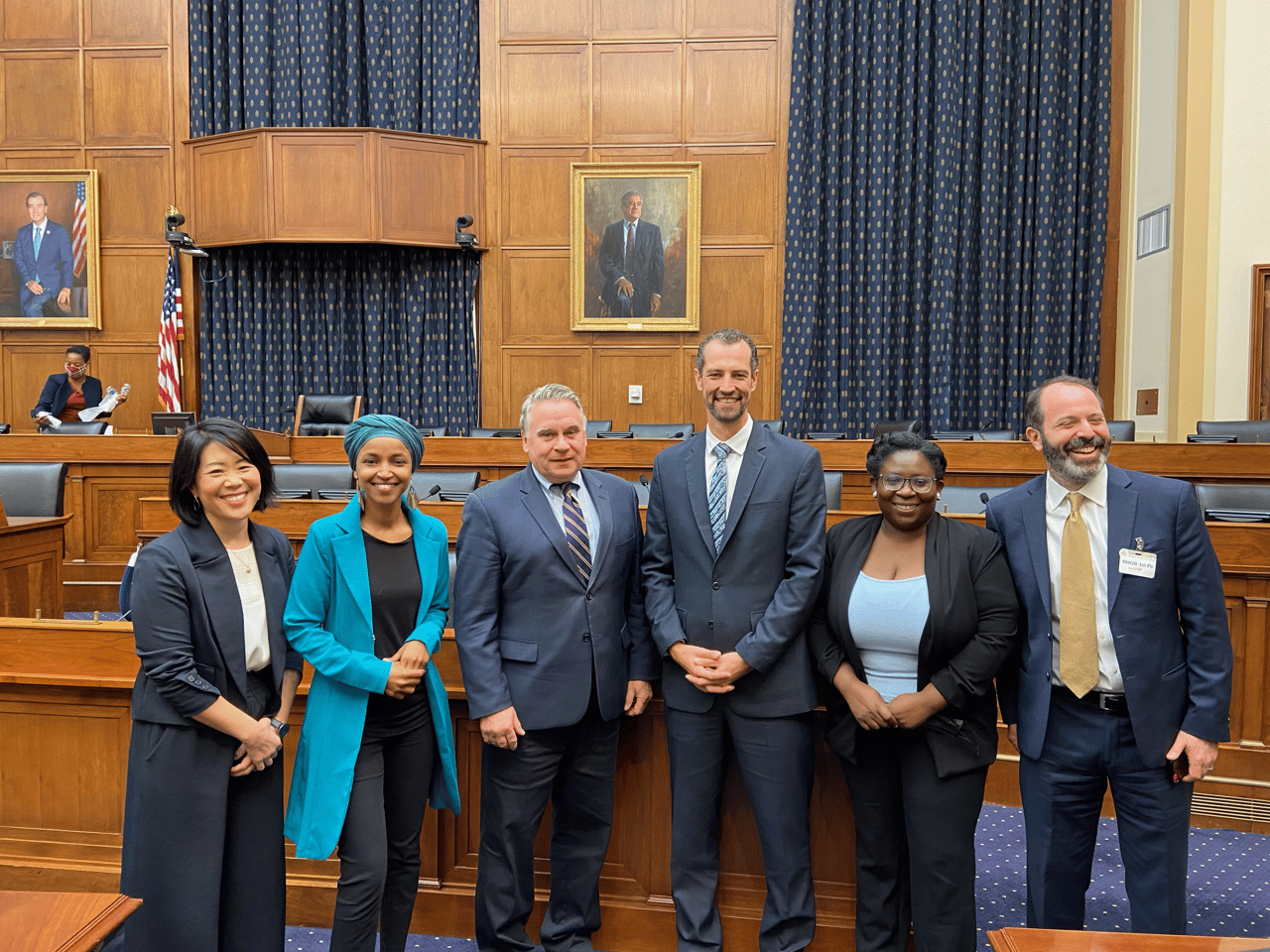IJM Presents Anti-Trafficking Recommendations to U.S. House of Representatives

Wednesday, October 27, 2021, WASHINGTON, D.C. — Today, Peter Williams, IJM Principal Advisor on Modern Slavery, testified before the United States House of Representatives Foreign Affairs Committee in a hearing on Combating Global Human Trafficking at the invitation of Subcommittee on Africa, Global Health, and Global Human Rights Chair, Representative Karen Bass (D-CA), and Ranking Member, Representative Chris Smith (R-NJ).
Williams’ testimony focused on the importance of the Trafficking in Persons Report (TIP) published by the U.S. Department of State and its impact on anti-human trafficking work done by government officials, survivors and NGOs. In his written testimony, Williams specifically addressed the impacts the TIP Report has had on IJM’s work in the Philippines, Cambodia, Ghana and the Dominican Republic.
"The TIP Report continues to be an inestimably important resource in the global fight to end trafficking and slavery." Williams said.
"The U.S. Congress's keen interest in the issue, and its bipartisan collaboration to resource the State Department Office to Monitor and Combat Trafficking in Persons (TIP Office) and protect the integrity of the TIP Report have assured its continued relevance, over 20 years since its inception."
Williams continued,
"IJM respectfully calls upon President Biden to announce a nominee to lead the TIP Office, and for the Senate to take up the nomination forthwith. The TIP Report's usefulness as a tool to combat the crime of trafficking is an invaluable asset.
The process of U.S. experts developing the narrative, gathering the data, and discussing the findings and tier rankings with officials in 188 countries contributes to improvements; it stimulates authorities to recognise victims and prosecute perpetrators, and it bolsters the effects of reformers and anti-slavery activists - including the essential work of survival leaders."
During his oral testimony, Williams shared three things the U.S. Government can lead on to help scale the most effective TIP interventions:
- Encourage better data. Governments will never know how effective their responses are if they do not commit resources to accurate and transparent data capture. IJM would like to see this emphasised in future TIP reports.
- Continue to encourage public justice ownership. Government to government partnerships like Child Protection Compacts are excellent models that enable three-way collaboration that includes real ownership by host public justice systems, partnership with civil society, and the sustainable scale-up of effective interventions.
- Take this opportunity to lead in technological solutions to trafficking. The simple power of video conferencing, now ubiquitous in our work lives, allows survivors to give evidence remotely from their home countries. We’ve seen this used in Southeast Asia and in Romania, and increasingly during the pandemic, but it’s not done nearly enough. Greater investment in this simple measure would increase effective, survivor-friendly trafficking prosecutions globally.
Other witnesses in the hearing included: CEO of the Global Fund to End Modern Slavery Alex Their, CEO of Polaris Catherine Chen, Board Member of Free the Slaves Evelyn Chumbow. You can view the full hearing here and learn more about Peter Williams Testimony here.